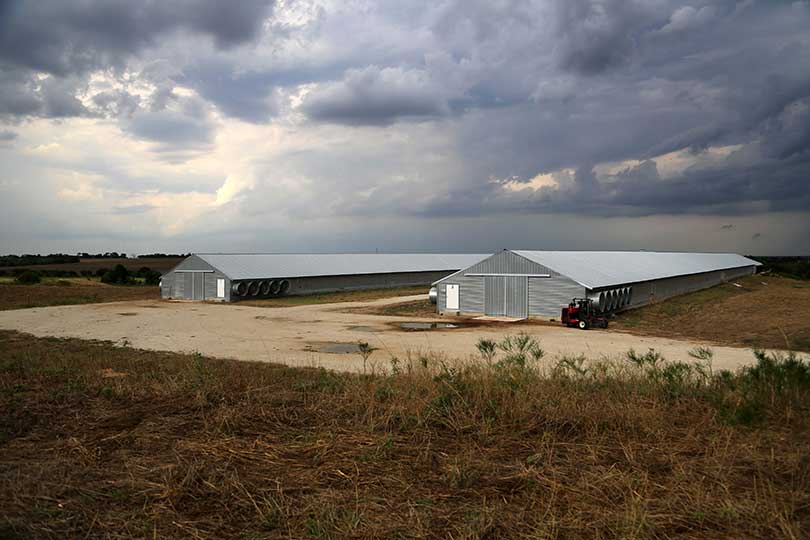The U.S. Department of Agriculture (USDA) published the long-awaited Grain Inspection, Packers and Stockyards Administration (GIPSA) rule on Wednesday. The new rules would level the playing field for farmers by proposing protections against the most egregious retaliatory practices harming chicken growers.
“The Agriculture Department’s Farmer Fair Practices Rules take an important step toward leveling the playing field in the poultry industry by ensuring companies follow the law and treat farmers fairly, without disrupting beef and pork markets,” American Farm Bureau Federation President Zippy Duvall said in a statement.
The USDA said the Farmer Fair Practices Rules are comprised of two proposed rules and one interim final rule that will make changes to the tournament payment system for poultry and address anticompetitive buying practices for livestock.
Part of the interim final rule will change the practice that a farmer must prove that a certain practice is damaging to the entire industry in order to sue meatpackers or processors.
Agricultural appropriations bill riders were used to block the USDA from implementing the rules since the final rule was issued in 2011. The agency began work on the rules in 2016 without funding prohibitions.
“For years, American farmers have been calling for protections against the most damaging unfair and deceptive practices confronting family farms across the country,” Agriculture Secretary Tom Vilsack said. “Poultry growers in particular are vulnerable to market risks and concentration in the processor market. All too often, processors and packers wield the power, and farmers carry the risk. Today, USDA is taking a big step toward providing the protections that farmers deserve and need.”
The four largest processors in the poultry sector in the U.S. control 51 percent of the broiler market and 57 percent of the turkey market. Poultry growers often have limited options for processors available in their local communities due to this concentration. Processors and packers often wield market power over the growers, treating them unfairly, suppressing how much they are paid or pitting them against each other, the agency said.
The rule proposes to strengthen enforcement of regulations regarding contracts from being abruptly terminated in retaliation for refusing to make costly capital investments demanded by the process.
“Farm Bureau has long advocated for changes in the Grain Inspection, Packers and Stockyards Administration’s rules,” Duvall said. “We have asked for changes to stop harmful business practices and protect chicken farmers. A one-size-fits-all approach doesn’t work here, and that’s why we have also worked to preserve the contract arrangements and marketing practices that make the beef and pork industries competitive.”
The Farmer Fair Practices Rules are designed to determine whether a live poultry dealer is using a ranking system in an unfair manner. Poultry tournament systems can put growers at a disadvantage when processors deliver sickly birds with a higher mortality rate or provide bad feed, which cuts deeply into a grower’s opportunity to earn income on those birds.
In hearings held in 2010, the agency heard from chicken growers who felt extorted into making expensive upgrades under threat of not being provided chickens to grow, and who tried to explore opportunities with other processors but were met with intimidation and discrimination.
“In this country, we expect fair treatment and fair wages for services rendered. But for chicken growers in particular, the deck is stacked against them and they have nowhere to turn if they are unfairly cut out of the business,” the agency said.
The interim final rule will affirmatively establish the department’s longtime position that it is not necessary to demonstrate that an unfair practice harms the entire market in order to prove a violation of the Packers and Stockyards Act.
The USDA said requiring farmers to prove harm to competition across an entire industry in order to get compensated for being treated unfairly was an impossibly high bar in so many cases where they deserved to be protected.
The Farmer Fair Practices Rules reflect feedback received in more than 60,000 comments and rigorous economic analysis conducted by GIPSA in collaboration with the USDA Offi

